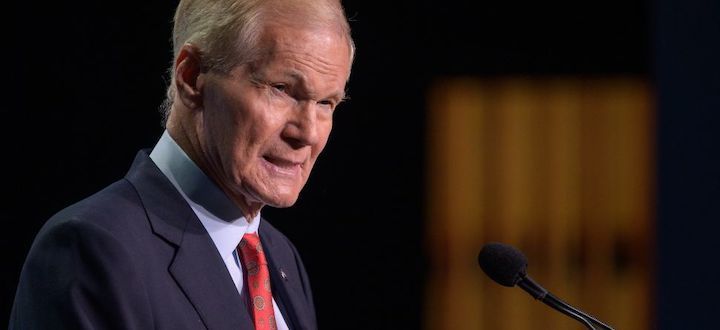27.08.2021
Will China's space station complicate things in low-Earth orbit?

Aug. 25, 2021 at the 36th annual Space Symposium, NASA Administrator Bill Nelson discussed the future of the International Space Station.
COLORADO SPRINGS, Colo. — NASA hopes that commercial space stations will orbit Earth once the International Space Station eventually retires, NASA Administrator Bill Nelson said today (Aug. 25) at the 36th Space Symposium.
The space station, which was completed in 2011, could retire as soon as 2024. However, today, Nelson revealed that he expects the orbiting lab to last to 2030 and that NASA hopes it will be replaced by commercial labs in orbit.
"We expect to expand the space station as a government project all the way to 2030. And we hope it will be followed by commercial stations," Nelson said during a "Heads of Agency" panel alongside other space leaders from around the world.
Now, while NASA hopes for commercial space stations to take over as the International Space Station nears the end of its tenure, China has already begun building its own space station. And, as NASA is prohibited from engaging in bilateral activities with China, this move by China is more competitive than collaborative.
"Unfortunately, I believe we're in a space race with China," Nelson said during the panel. "I'm speaking on behalf of the United States, for China to be a partner. I'd like China to do with us as a military adversary, like Russia has done ... I would like to try to do that. But China is very secretive, and part of the civilian space program is that you've got to be transparent."
Nelson pointed to Russia's longstanding history as a collaborator alongside NASA in space, despite ongoing political divides back on Earth. While there have been many issues and instances of tension between the nations in space, most recently with Russia's new Nauka module causing the space station to tailspinafter it accidentally fired its thrusters post-docking.
The situation with Nauka has sparked questions about the state of NASA's current relationship and status with Russia's space agency Roscosmos. This situation is further complicated by the fact that Russia and China are collaborating on a moon base together.
However, Nelson is confident in NASA's partnership with Russia.
The pair have been "enemies, even in the midst of the Cold War, that can come together and find a common denominator in the civilian space," Nelson said.
Quelle: SC
